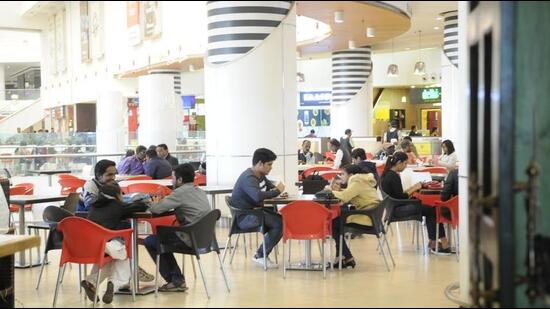New Delhi, April 2025: The Central Consumer Protection Authority (CCPA) has taken suo moto action against five prominent eateries in Delhi for allegedly failing to comply with a Delhi High Court ruling on the imposition of mandatory service charges.

The restaurants named in the notice are Makhna Deli, Xero Courtyard, Castle Barbeque, Chaayos, and Fiesta by Barbeque Nation. The notices were issued under provisions of the Consumer Protection Act, 2019, following complaints submitted via the National Consumer Helpline (1915).
Restaurants Accused of Ignoring Delhi HC Judgment
According to a statement by the Ministry of Consumer Affairs, the eateries allegedly continued to charge customers a mandatory service fee without obtaining prior consent, thereby violating established consumer rights and indulging in unfair trade practices.
“The Central Consumer Protection Authority has taken suo moto action against five restaurants for failing to refund mandatory service charges despite the judgment held by the Hon’ble High Court of Delhi,” the statement read.
Service Charge Guidelines Reiterated
In July 2022, the CCPA had issued comprehensive guidelines against automatic inclusion of service charges in food bills at restaurants or hotels. These rules were further upheld in March 2025 by the Delhi High Court. The guidelines stipulate:
- No automatic or default addition of service charge to food bills
- Service charge cannot be collected under any alternative label
- Customers must be clearly informed that service charges are voluntary and discretionary
- Services cannot be denied based on refusal to pay the charge
- GST cannot be levied on service charges added to food bills
Despite these clear directives, CCPA received complaints that certain restaurants continued to levy the charge and refused refunds when requested.
The guidelines issued by CCPA state that no hotels or restaurant will add service charge automatically or by default in the food bill; no collection of service charge will be done by any other name; no hotel or restaurant will force a consumer to pay service charge, and will inform the consumer that service charge is voluntary, optional and at consumer’s discretion. It added that no restriction on entry or provision of services will be based on collection of service charge, and the same will not be collected by adding it along with the food bill and levying GST on the total amount.
Restaurant associations, however, said that the situation remains fluid as the associations have appealed against the court order.
“Since the matter is sub judice and there is no final order yet, it remains a bit of grey area. So, in some cases restaurant owners are deciding to go ahead with the service charge, which in many cases is removed if the customers ask for it. NRAI, meanwhile, has appealed to all restaurants to not take service charge,” said Sandeep Goyale, Delhi chapter hear of NRAI.
Meanwhile, when contacted, Chaayos employees?? said that they do not impose service charge. However, there was no official response from the company. Other restaurants did not respond to HT’s queries for a comment.
Legal Status & Restaurant Response
Industry bodies including the National Restaurant Association of India (NRAI) and the Federation of Hotel and Restaurant Associations of India (FHRAI) have appealed against the High Court order. The matter remains sub judice and will be heard on May 9.
“It’s a grey area as the matter is still in court. Some restaurants still include the charge but remove it on customer request. NRAI has advised members to avoid service charges,” said Sandeep Goyale, Delhi chapter head of NRAI.
When approached, an employee at Chaayos claimed the chain does not impose service charges. Other eateries did not respond to requests for comment.
Consumer Rights in Focus
The action by CCPA marks a firm stance on protecting consumers from hidden charges and undue pressure while dining out. The move also underscores growing public awareness and willingness to report unfair practices through government platforms like the National Consumer Helpline.
As the legal battle continues, the clarity and enforcement of consumer rights regarding service charges will remain a closely watched issue in India’s hospitality sector.
Also read: Delhi Heatwave 2025: Vets Urge Public to Help Struggling Animals









